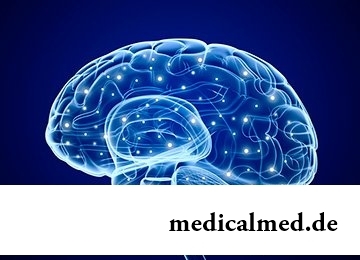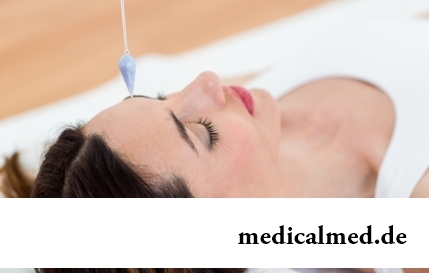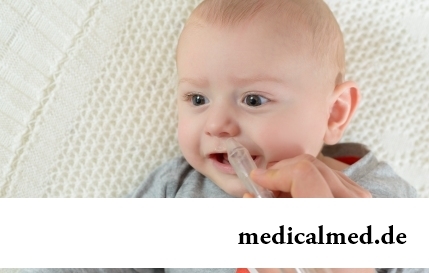





Brain hypoxia
 Brain hypoxia in medicine it is accepted to call a disease at which the brain of the person receives insufficient amount of oxygen. This morbid condition can have serious effects up to a coma and a lethal outcome. It is necessary to tell that very often the death of the person affected with such disease happens sudden. Symptoms and treatment of a hypoxia of a brain at different patients directly depend on the reasons which provoked a disease.
Brain hypoxia in medicine it is accepted to call a disease at which the brain of the person receives insufficient amount of oxygen. This morbid condition can have serious effects up to a coma and a lethal outcome. It is necessary to tell that very often the death of the person affected with such disease happens sudden. Symptoms and treatment of a hypoxia of a brain at different patients directly depend on the reasons which provoked a disease.
Brain hypoxia reasons
As it was already noted, the lack of the oxygen supplying this vital is the very first reason of a hypoxia of a brain. Such pathology can be provoked by various states, for example, rises on height, work in mines, in submarines etc. Besides, shortage of oxygen is caused also by other factors. Airways quite often can be clogged with foreign bodys or slime. Also as the reason of a hypoxia of a brain the acute shortage of specific vitamins B a human body can act.
It is possible to distinguish the following from other common causes provoking developing of this disease:
- Inhalation of carbon monoxide (for example, during the fire);
- Poisoning with carbon monoxide;
- The diseases breaking functioning of respiratory muscles (paralysis);
- Strong pressure upon area of a throat (trachea).
Also it is possible to classify this pathology by the reasons of a hypoxia of a brain thus:
- Disseminated hypoxia;
- Central tselebralny ischemia;
- Global tselebralny ischemia;
- Ischemic stroke.
The disseminated hypoxia of a brain is provoked by insufficient amount of oxygen in blood of the person and is characterized by disturbance of functions from low to the average level of weight.
The central tselebralny ischemia represents the broken blood circulation on the localized site that can turn out to be consequence of various diseases (for example, aneurism or the blood clot which is shown obstruction of blood vessels). It is important to note that such state is addition of the most part of clinical heart attacks. Global ischemia call complete cessation of supply of a brain with blood.
The heavy ischemic stroke is also provoked by shortage of oxygen because of the broken blood circulation. Such attack covers many sites of body.
Brain hypoxia symptoms
Each 100 g of a brain every minute need approximately in 3,3 ml of oxygen. When such quantity is not provided, the first symptoms of a hypoxia of a brain begin to be shown. They assume, as a rule, some difficulties when performing intellectual tasks and disturbance of a short-term memory of the person. Besides, at an initial stage of a disease the condition of a hyperexcitability is quite often observed.
The patient can feel excessive vigor and even euphoria that is followed by loss of control over own movements, the shaky gait which is speeded up by pulse and disturbance of cognitive functions in general. Besides, discolorations of skin of the person are characteristic of the first stage of a hypoxia of a brain. Most often it becomes pale with a bluish shade, however can sometimes gain also dark red color. Quite often a brain hypoxia symptom at this stage is cold sweat.
The second stage of a disease is characterized by disturbance of functioning of a nervous system of the person. At the patient regular attacks of nausea and dizziness are, as a rule, observed, often the disease is followed by severe vomiting. Besides, as very often additional symptoms of a hypoxia of a brain at the second stage disturbance of clearness of sight, frequent blackouts, the general weakness of an organism and even faints act.
Hard cases of this disease often are followed by brain hypostasis that provokes serious frustration in its activity owing to loss conditional, and then and instinctive reflexes. If the amount of oxygen for a brain continues to remain lower than norm, skin of the person loses sensitivity, and then and all bodies gradually stop normal functioning that often leads to a condition of a deep coma and a lethal outcome.
Diagnosis and treatment of a hypoxia of a brain
Effective treatment of a hypoxia of a brain is possible only after the disease origin is established. It comes to light both on the basis of medical history of the patient, and by means of diagnosis by various methods:
- Blood tests;
- The electrocardiogram which helps to measure activity of heart;
- The electroencephalogram analyzing functioning of cells of a brain;
- Ekhokardiogramma;
- Computer tomography of the head;
- Magnetic and resonant tomography of the head;
- Pulsoksimetriya helping to establish blood saturation by oxygen (the indicator at the sick person happens lower than 95%);
- Kapnografiya and other types of a research of gases of expired air.
 As it was already told, treatment of a hypoxia of a brain is directed first of all to elimination of a cause of illness therefore in different cases the doctor appoints various procedures. For example, at an easy form sometimes rather usual airing of the room or walks in the fresh air whereas serious conditions demand serious medical procedures. So, it is possible to allocate separate methods of treatment of a hypoxia of a brain depending on its specific look:
As it was already told, treatment of a hypoxia of a brain is directed first of all to elimination of a cause of illness therefore in different cases the doctor appoints various procedures. For example, at an easy form sometimes rather usual airing of the room or walks in the fresh air whereas serious conditions demand serious medical procedures. So, it is possible to allocate separate methods of treatment of a hypoxia of a brain depending on its specific look:
- The exogenous hypoxia assumes use of the oxygen equipment (oxygen masks, barrels, pillows);
- The respiratory hypoxia demands use of the drugs recovering work of respiratory tracts. Artificial ventilation of the lungs is sometimes appointed;
- The Gemichesky hypoxia is eliminated by means of hemotransfusion and treatment with oxygen;
- The circulator hypoxia of a brain assumes use of the drugs with kardiotropny effect directed to microcirculation improvement;
- At a fabric hypoxia the drugs recovering oxygen utilization by fabrics sometimes are prescribed apply ventilation of the lungs.
Besides, often at shortage of oxygen doctors recommend reception of vitamins and walk in the fresh air.
In Great Britain there is a law according to which the surgeon can refuse to do to the patient operation if he smokes or has excess weight. The person has to refuse addictions, and then, perhaps, he will not need an operative measure.

More than a half of the married couples which faced prostatitis – leave. The new broadcast "Female View of Prostatitis" will help to learn...
Section: Articles about health
The problem of diagnosis was and remains to one of the most important in medicine. From that, the reason of an indisposition of the patient will be how precisely defined, eventually success of treatment depends. In spite of the fact that the majority of the diagnostic methods applied in about...
Section: Articles about health
Practice of hypnotic impact on consciousness of the person contains about two millennia. During this time scientists managed to learn a lot of things about a phenomenon of hypnosis and learned to facilitate a condition of the patients having heavy illnesses with its help....
Section: Articles about health
According to World Health Organization, every third inhabitant of Earth has excess weight, and every tenth suffers ожирен...
Section: Articles about health
Work of a brain is extremely complex and in many respects is not studied yet. It is confirmed also by the features of thought processes which are shown when the person sleeps. Let's tell about some of them....
Section: Articles about health
Diseases of joints often begin imperceptibly for the person. The first stages of destruction of the cartilaginous tissue providing soft and free sliding of heads of bones in joint bags proceed slowly and absolutely without serious consequences. Especially unpleasantly for the fact that this process is not connected with advanced age: degradation of joint surfaces is, as a rule, noticeable after 30 years. It means that practically each able-bodied person at any time can face sad results...
Section: Articles about health
The medicine promptly develops, and the fact that else quite recently it seemed by miracle can now. We are not surprised any more to the fact that sport...
Section: Articles about health
Nightmares belong to the most unpleasant frustration. Statistically, they happen at 4% of adults, and almost at 70% of children and teenagers. During a nightmare of people dreams himself in extremely difficult, life-threatening situation. It wakens suddenly, in...
Section: Articles about health
The fatigue, sleep debt, disturbances of food, bad mood, vagaries of the weather – all these circumstances badly affect our appearance. Especially the person suffers: skin becomes flabby, loses healthy color, becomes covered by wrinkles, zones of hypostases and dark circles under eyes appear. It is not always possible to be saved from influence of aggressive factors, but we are quite able to minimize its effects. For this purpose usually apply the cosmetics and procedures helping увлаж...
Section: Articles about health
All diseases from nerves – in this joke a big element of truth, are said by doctors. Constant stresses lead body to decrease in protective forces...
Section: Articles about health
The dietology, as well as other sciences, does not stand still. Food stuffs are exposed to comprehensive study, and scientists obtain new information on their properties and influence on a human body. Unfortunately, this reasonable and natural process from time to time д...
Section: Articles about health
The way of life of people promptly changes from year to year: if about ten years ago the personal computer was not in each family, then today already very few people do without this device. Certainly, and children master the computer at full speed: they not only play on it games, but also study, and write school works, and search for necessary information....
Section: Articles about health
So, you resolved to lose weight. And now you try to understand what to begin with: from exercise stresses or a diet? And how to make, h...
Section: Slideshow
Household skills which to us so diligently imparted in the childhood it appears, not always bring only benefit. According to results of the last researches, some habits which for a long time were considered useful and even necessary can become...
Section: Articles about health
For the help to doctors in the choice of optimal solutions for treatment of various diseases the Cochrane scientific organization (Cochrane) conducts joint researches with representatives of scientific community around the world. The analysis of a series of the conducted researches of the drug Oscillococcinum® relating to group of cold remedies became one of the last methanolyses....
Section: Articles about health
Very often as a source of the infection which caused a disease serves our house - the place which a priori has to be safe. However...
Section: Articles about health
Practically each person is familiar with the annoying, pulling, unscrewing pains caused by overcooling of muscles of a back. In certain cases inflammatory process is not limited to discomfort, being followed by emergence of hypostasis, consolidations, increase температ...
Section: Articles about health
Mushrooms - the surprising inhabitants of our planet having a set of wonderful qualities. Thanks to one of them, a mold mushroom of Penicillium notatum, the first natural antibiotic - penicillin was received nearly 80 years ago. The mankind is obliged to this opening by millions of saved lives....
Section: Articles about health
Milk and products of its processing by right occupy one of the main places in a diet of the modern person. They contain necessary...
Section: Articles about health
Maternal milk is the best food for the newborn. It is the unique natural product containing an optimum set of nutrients, and which is best adapted in order that the baby normally developed and it was protected from harmful fa...
Section: Articles about health
Ability of an organism to resist to adverse environmental factors (to impact of temperature drops, humidity and pressure, to the attacks of causative organisms, etc.) directly depends on what the person eats. Business here not only in that cells of a body received a necessary set of nutrients, vitamins and microelements. Scientists established that such components which are capable to influence negatively immune system, in connection with also are a part of foodstuff...
Section: Articles about health
Dark circles (bruises) under eyes – a shortcoming with most of which often fight against the help of cosmetics (proofreaders, salons...
Section: Articles about health
Many parents of children at the age of 2-4 years face excessively whimsical behavior of the child. The kid exhausts constant crying and whims not only the parents, but also himself. In what the reasons of children's whims. And how to fight with them?...
Section: Slideshow
It is difficult to revaluate importance of kidneys for an organism. These bodies not only perform work on purification of blood of decomposition products and removal of excess liquid. They are responsible also for production of some hormones necessary for maintenance of a normality of a bone tissue, and also for a producing red blood cells – erythrocytes....
Section: Articles about health
Kidneys perform the most important function of clarification of blood from those products of metabolic processes which cannot be used орг...
Section: Articles about health
Scientists have no unambiguous opinion on a proximate cause of emergence of a carcinoma cutaneum today. Only the factors promoting development of this illness are precisely established. Treat them: long impact on skin of ultraviolet rays, radioactive...
Section: Articles about health
Each person knows that fervescence is an illness sign. However too low temperature (hypothermia), especially also can demonstrate existence of diseases when it is observed long enough. Such state is dangerous that it, unlike fever, does not give a serious inconvenience: patients usually complain only of weakness, drowsiness, apathy. Sometimes the fever and a cryesthesia in extremities joins. Many people at similar symptoms...
Section: Articles about health
